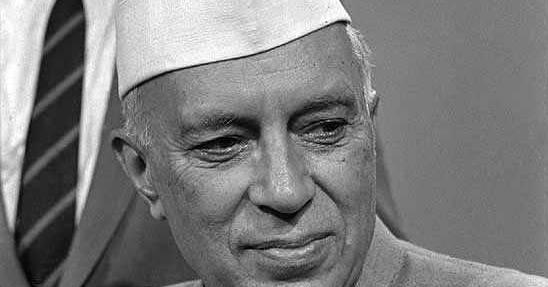Jawaharlal Nehru, a visionary leader and statesman, played a pivotal role in India’s struggle for independence and subsequent nation-building. As the country’s first Prime Minister, he laid the foundations for a democratic and pluralistic India. Nehru’s contributions were not confined to his tenure as Prime Minister; he left an indelible mark on the nation’s history and remains a symbol of India’s quest for progress and unity. This article delves into the life and legacy of Jawaharlal Nehru, highlighting his pivotal role as Founding Father and the first prime minister of India.
Early Life and Education
Jawaharlal Nehru was born on November 14, 1889, in Allahabad, British India, into a privileged family with a rich political heritage. His father, Motilal Nehru, was a prominent lawyer and a leader in the Indian National Congress, which instilled in young Nehru a deep sense of nationalism and commitment to India’s freedom struggle. He pursued his education at Harrow School in England and later studied at Trinity College, Cambridge, where he was exposed to Western political thought and ideals of democracy and socialism.
Joining the Freedom Movement
Upon returning to India, Jawaharlal Nehru actively joined the Indian National Congress and aligned himself with Mahatma Gandhi’s non-violent civil disobedience movement. He emerged as one of the key leaders of the Congress, advocating for complete independence from British rule. Nehru’s eloquence, charisma, and ability to connect with the masses made him a prominent figure in the freedom struggle.
Role in Independence Struggle
During India’s struggle for independence, Nehru underwent several incarcerations and faced numerous challenges. He participated in various movements, including the Salt March, Quit India Movement, and the Civil Disobedience Movement. Nehru’s tireless efforts and sacrifices endeared him to the people, making him a symbol of hope and resilience.
India’s First Prime Minister
With India finally gaining independence on August 15, 1947, Jawaharlal Nehru was appointed as the country’s first Prime Minister. He took on the immense responsibility of leading a newly independent and diverse nation. Nehru’s vision for India was based on democracy, secularism, and social justice. He aimed to build a modern and progressive nation that upheld the principles of liberty, equality, and fraternity.
Economic Policies and Industrialisation
As Prime Minister, Nehru laid the foundation for India’s economic development through a mixed economy model. He emphasised industrialisation, focusing on establishing key sectors such as steel, heavy machinery, and agriculture. His government also championed land reforms to uplift farmers and improve agricultural productivity. The establishment of the Planning Commission in the year 1950 marked a significant step towards planned economic development.
Non-Alignment and Foreign Policy
Jawaharlal Nehru’s foreign policy was characterised by the principle of non-alignment, whereby India refused to align itself with any major power bloc during the Cold War. He believed that India’s interests lay in maintaining friendly relations with all nations and promoting global peace and cooperation. Nehru played a crucial role in advocating for decolonisation in Africa and Asia, earning him respect on the international stage.
Advocacy for Women’s Rights and Education
Nehru was a strong advocate for women’s rights and believed in their empowerment through education and political participation. He encouraged the establishment of educational institutions for girls and worked towards abolishing discriminatory practices against women. His daughter, Indira Gandhi, later followed in his footsteps and became the first female Prime Minister of India.
Jawaharlal Nehru’s journey from a young nationalist to the first prime minister of India is a testament to his unwavering dedication to the country’s progress and unity. His vision for a democratic and secular India laid the groundwork for the nation’s development and governance. Nehru’s legacy remains an integral part of India’s identity as a diverse and vibrant nation, and his ideas continue to shape the country’s political and social landscape as India’s Founding Father, Nehru’s contributions will be remembered and celebrated for generations to come.
